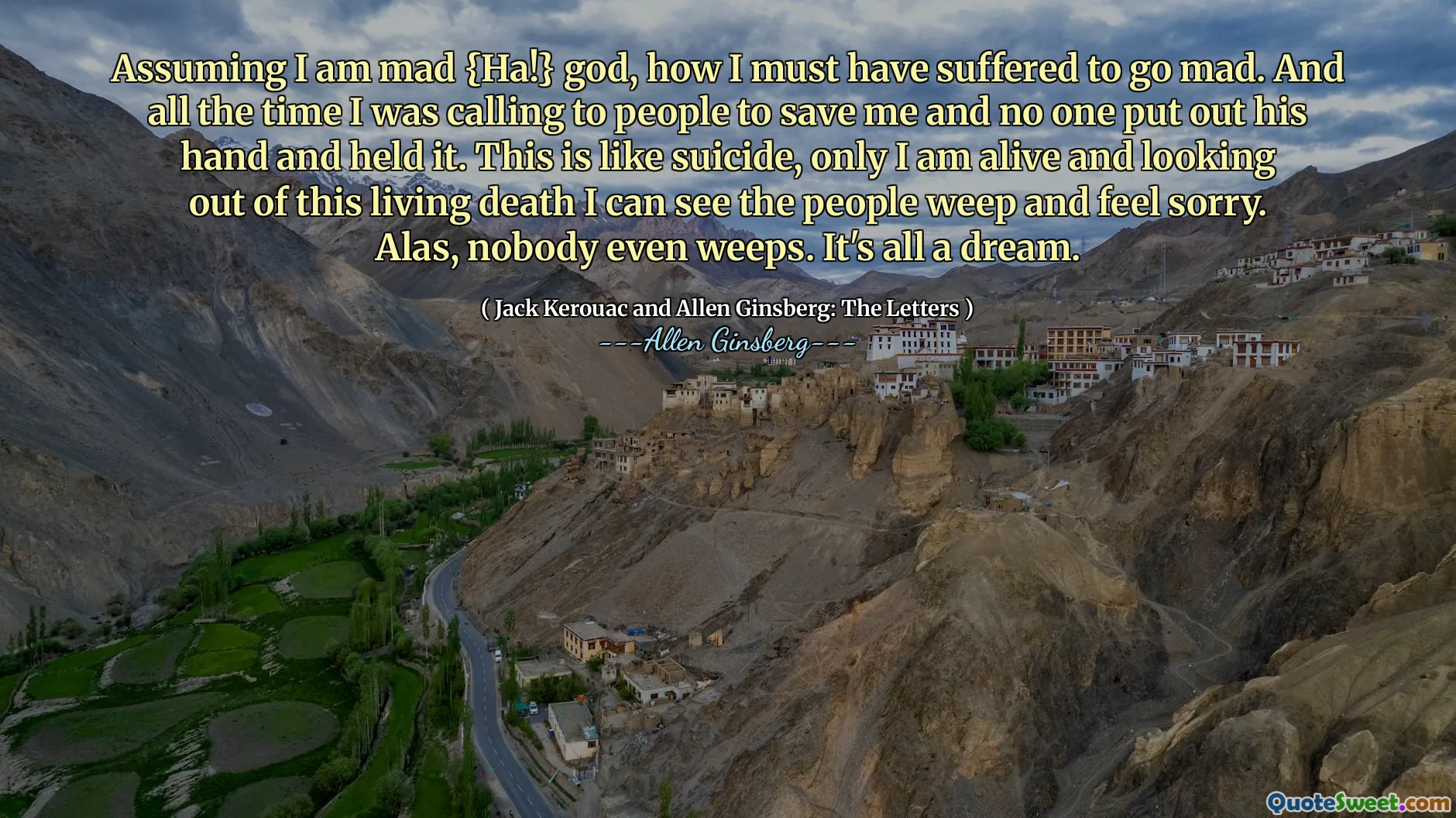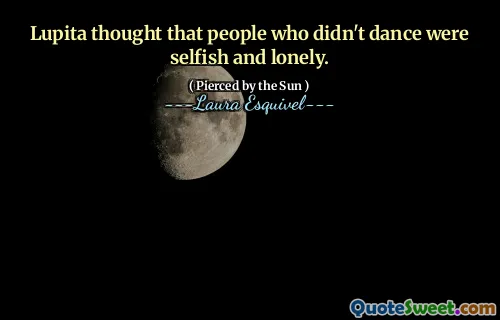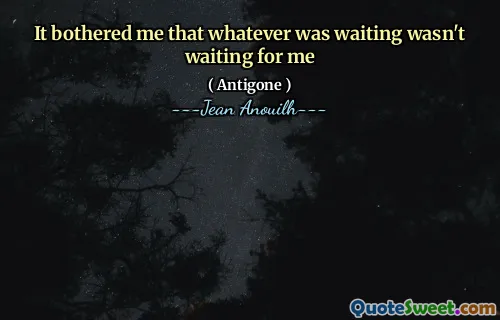
Assuming I am mad {Ha!} god, how I must have suffered to go mad. And all the time I was calling to people to save me and no one put out his hand and held it. This is like suicide, only I am alive and looking out of this living death I can see the people weep and feel sorry. Alas, nobody even weeps. It's all a dream.
This quote by Allen Ginsberg dives deeply into the torment of mental anguish and the isolating experience of feeling misunderstood or abandoned in one's struggle. The speaker addresses the painful assumption of madness, not as a simple diagnosis but as a catalyst for profound suffering. There's a raw honesty in the lament about reaching out for help and finding no response — a powerful metaphor for the loneliness that can accompany psychological distress. The phrase "This is like suicide, only I am alive and looking out of this living death" poignantly conveys a state of existence that is paradoxically both alive and dead, emphasizing the numbness and despair that mental illness can induce. It also touches upon the painful invisibility of such suffering, as the speaker notes people weep and feel sorry but that no one actively intervenes or truly understands. The ending "It's all a dream" can suggest a surreal, dissociative state where reality feels distant or distorted. On a broader scale, this excerpt invites reflection on the societal tendency to overlook or inadequately respond to mental health crises, reflecting a need for greater empathy and connection. The haunting beauty of these words rises from their unfiltered portrayal of internal suffering, offering a timeless and deeply human exploration of madness, solitude, and the quest for compassion amid despair.






